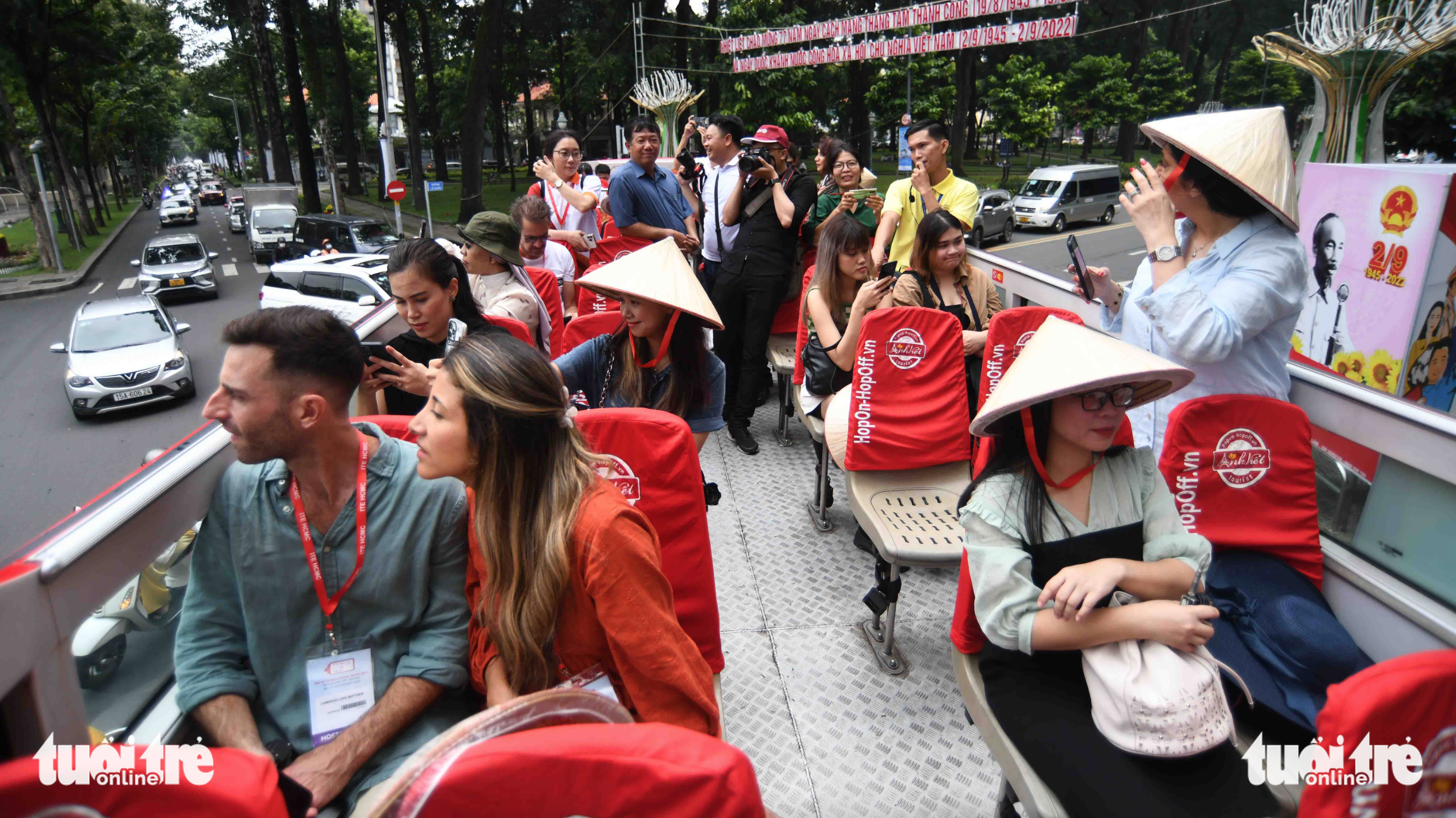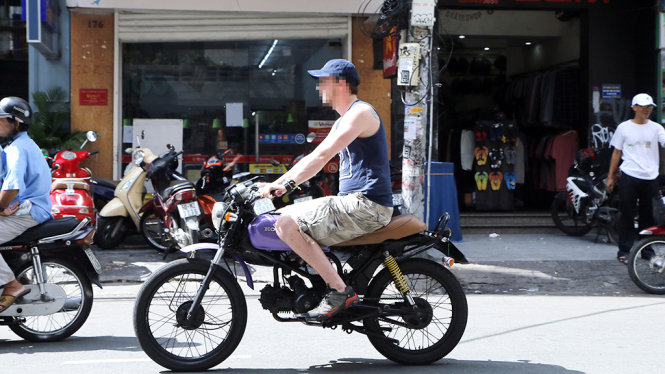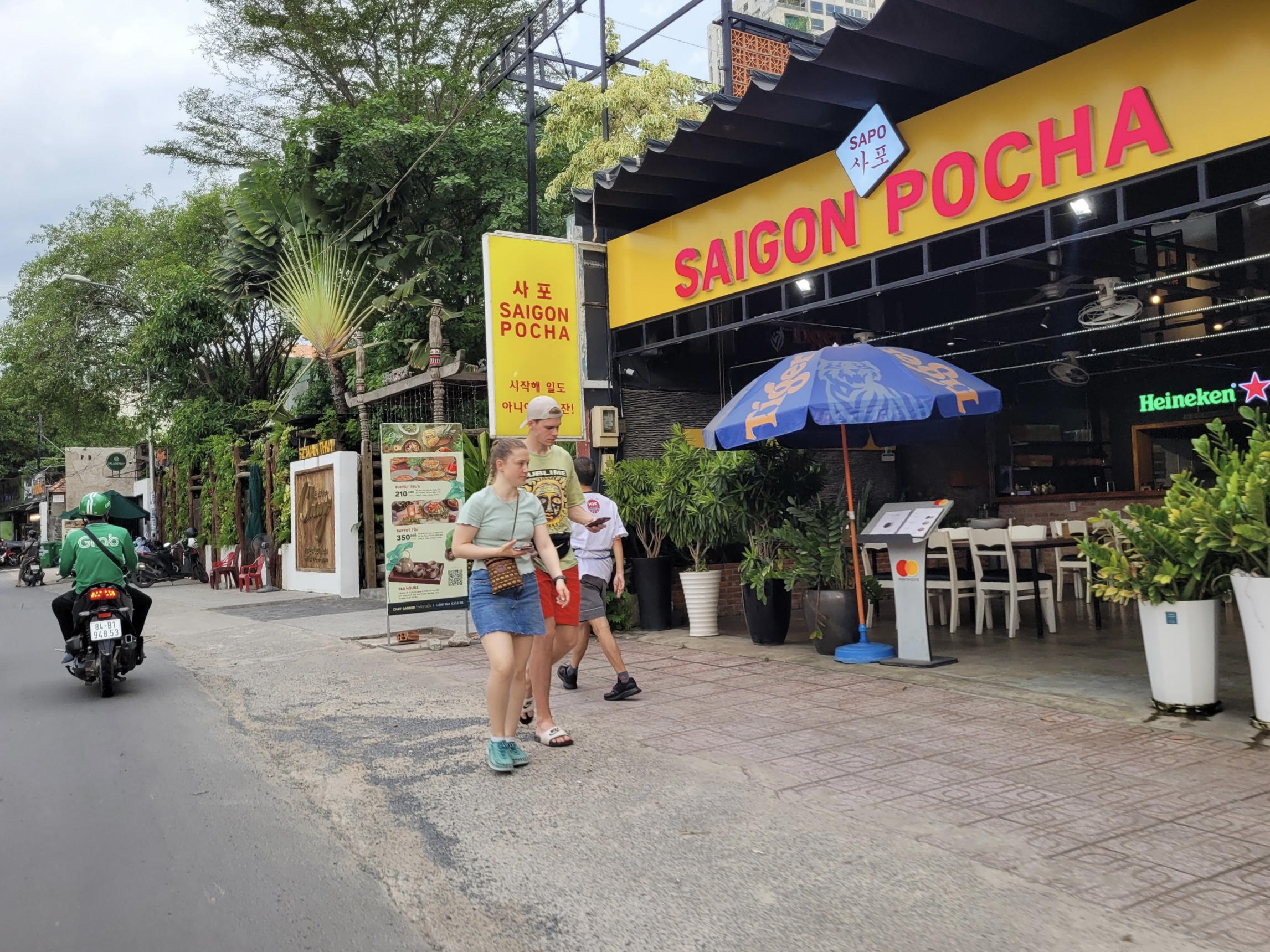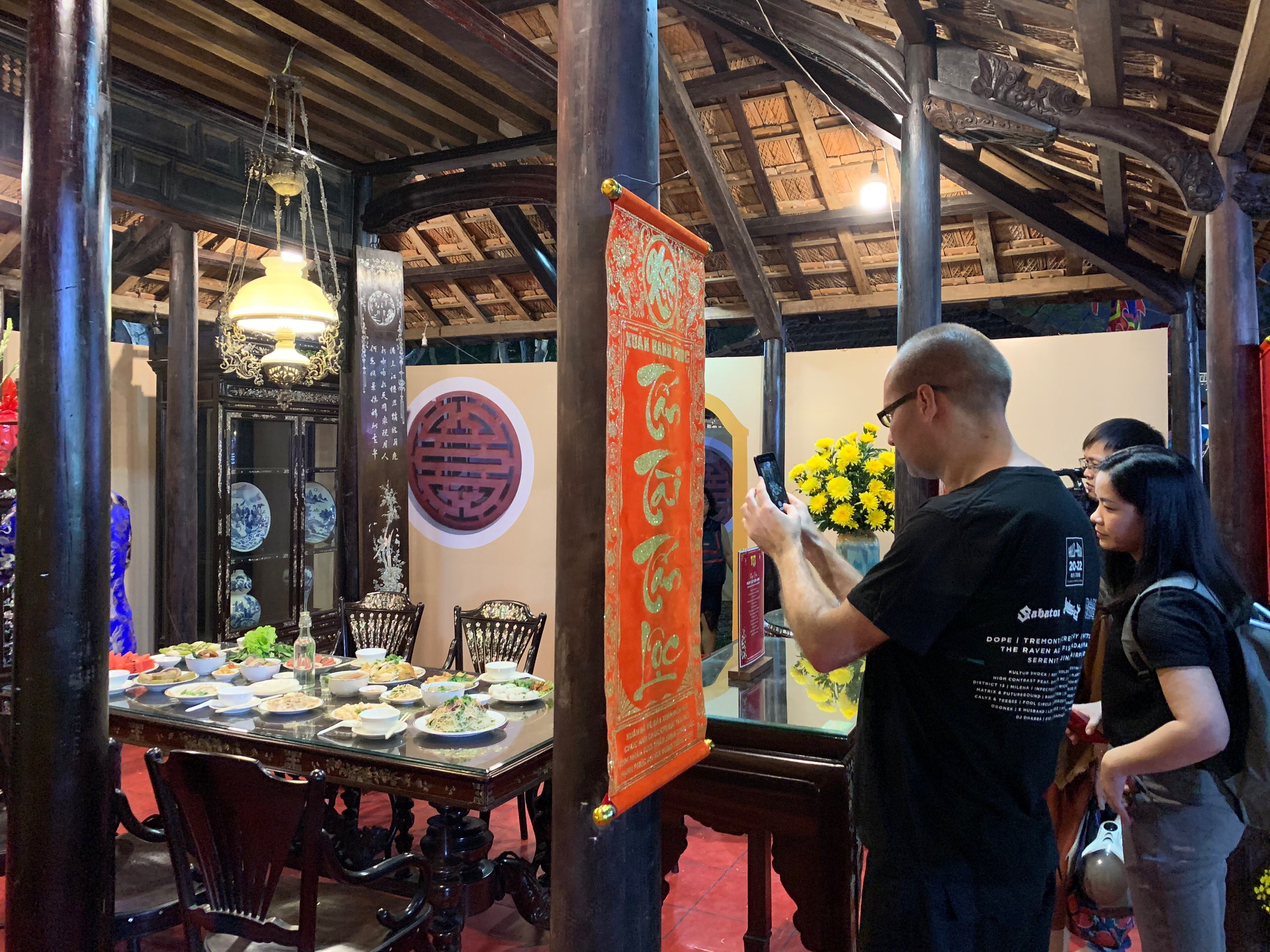Editor's note: This opinion piece does not necessarily reflects Tuoi Tre News' stance.
For over a decade, I have been part of the expat community in Ho Chi Minh City. During that time, my focus has been on reaching the true heart and spirit of Vietnam. But one thing that has always been there, like a thorn in my foot, has been a small group of expats continuing to “ruin it” for everyone else and act like fools.
With numbers of expats continuing to stabilize following the mass COVID-19 exodus in 2021, a small subsection with no respect for Vietnam, its people, or other expats in the community has emerged.
Probably the only good thing about COVID-19 was that many of these “fringe expats” vanished from the streets of Ho Chi Minh City, meaning that going to bars and shops was, generally, a good experience.
This is because some don’t work at all. So in difficult times, they retreated to their home countries.
In a recent story, Eight Things I Hate about Vietnam, I highlighted some of the frustrations that expats may experience whilst living in Vietnam. But there was one salient point missing that was noted by my friends at the local bar – the small group of expats that makes living in Vietnam a terrible experience for the many “good” expats who live here.
From this conversation I have gathered the things that my expat friends and associates believe are the worst things about these “fringe expats” that make it difficult for all the good people that see Vietnam as a great place to experience.
Refusing to wear a helmet on a motorbike
|
|
| A foreigner rides a motorbike without wearing a crash helmet in Ho Chi Minh City, Vietnam. Photo: Ngoc Duong / Tuoi Tre |
Have you ever been to Thao Dien and seen foreigners racing around the streets on motorbikes with no helmets in sight? The law in Vietnam is that every person on a motorbike from the age of six must wear a helmet, but there are some that see themselves as being above the law. This paints the image that all foreigners have a disregard for Vietnam’s road rules.
Abusing bar/café staff for no reason
They say if you have a problem with alcohol you shouldn’t drink. In most Western countries, if you were to abuse an employee at a bar or shop, you would be removed immediately or even arrested. In Vietnam, however, a small number of expats believe that it is OK to abuse staff, especially young female bar employees. It infuriates me to see these girls berated by a drunken slob because they are unable to control themselves after a bit of alcohol.
I saw this recently when a man at my go-to bar consumed too much alcohol and asked the waitress to get him another drink. When the already busy waitress didn’t hear him, he slammed his glass on the table and began a tirade of abuse aimed at the poor woman. e was eventually told to calm down though the employee was already in tears. I was so angry at the man’s disregard for the woman that I apologized to her and left the bar.
Expats living in “The Bubble"
There is at least one “bubble” in most big cities – an area where the majority (or at least a large number) of expats live. As a result, “the bubble” usually has medical facilities, food, and entertainment services aimed toward expats. Many expats who live in “the bubble” often realize they have no reason to ever leave it.
The people who rarely leave “the bubble” signify almost everything that is bad about the “fringe expats” who live in Vietnam. They usually refuse to learn any Vietnamese. They will often not eat any Vietnamese food, preferring only food from their home country. They often refuse to follow the road rules of the country and they think they are above, or more privileged, than locals in the community.
If you choose to live in a foreign country you need, in my mind, to be part of the community. This means assimilating into the community by accepting the culture and embracing the customs of the country. The “bubble community” rarely does this.
|
|
| People walk by a restaurant in Thao Dien Ward, an expat hub in Thu Duc City, Ho Chi Minh City. Photo: Ray Kuschert / Tuoi Tre News |
Refusing to learn any Vietnamese
Many foreign teachers in Vietnam have a reputation for thinking they can live in the country without having any need to learn even the most basic words, which is plain disrespectful. Like the “bubble community,” they often have the opinion that they are above the Vietnamese community and it is the Vietnamese who should learn English in order to communicate at their level.
Learning the language, even just a few words, shows respect for the country. It shows that you are humble and respect the community for accepting you as one of their own. In my home country, those who refuse to learn English are looked upon with disdain. Maybe it is the same here with foreigners who refuse to learn any Vietnamese?
Disrespecting Vietnam’s culture
I recently asked a colleague, “What are you doing for Tet?”
The reply I got was unquotable, but it mostly invoked the inconvenience of living for a week because his regular shops and bars would not be open and he wouldn’t be paid because he wouldn’t be working. This showed me that he had no respect for or understanding of Vietnamese culture.
The longer I live in Vietnam, the more I learn that all people are the same. Tet, or Lunar New Year, in this case, is no different to Christmas or Thanksgiving and brings with it cultural traditions that are important to the people of Vietnam.
|
|
| A Bulgarian visitor takes a picture of a traditional Vietnamese Tet meal displayed at the Tet Festival 2020 at Le Van Tam Park in Ho Chi Minh City’s District 1 on January 3, 2020. Photo: Bao Anh / Tuoi Tre News |
As a foreigner, I have learned that respecting cultures and traditions is very important because it shows respect for the people who have accepted me into their community. I will be visiting at least nine homes at this time and giving lucky money to young and old people alike to show my appreciation.
But respect doesn’t just happen during Tet. From being appropriately dressed when you go out, visiting a pagoda or a family’s home to even knowing how to properly address the elderly, respecting the culture of the country you choose to live in indicates that you are humble and appreciative of the gift of experiencing life in Vietnam.
Online abuse from foreigners
Social media can be an awful medium at times, and if you have ever had the experience of putting an opinion onto one of the social media groups aimed at expats in Vietnam, you will understand that the occasional vile response is to be expected.
Indeed, I am certain that the “fringe expats” will have a field day throwing vile abuse once this opinion piece is published on social media, all because someone had the audacity to put forward negative opinions about them.
This is not how you show yourself to have respect for the community. This is not a way to show that you appreciate the opportunity to live in Vietnam. All it does is show that we (and yes, it washes over the entire expat community) are disrespectful and not appreciative of the gift of being allowed to call Vietnam "home.”
Street beggars
Nothing makes me cringe more than foreigners with a sign in Vietnamese asking for money because they “lost [their] passports.”
It’s also the same line and story, but we all know the truth. They are getting a free ride around the country and using the naivety of the local community to take their money.
It is wrong.
In the same spirit that there are things I hate about Vietnam, there are also many expats that I admire and call friends. There are many expats from all nations that do great things in Vietnam and make it a better place in their own way. But a small number of expats need to realize the opportunity they have been afforded and change accordingly.
Vietnam and its people are not, nor ever were, lesser people than foreigners. Vietnamese people have a history of success against the odds. They have taken on every challenge for hundreds of years and succeeded where others failed. Vietnam has consistently demonstrated rapid and robust progress in both education and the economy, outpacing many countries in Southeast Asia and across the globe. The people of Vietnam exhibit a remarkable capacity to express love, kindness, and respect, creating a unique and unparalleled experience that I have not encountered anywhere else in the world.
I hope that 2024 can be the year that we can all do a little better to show our appreciation for the gift of being able to live in Vietnam. You never know the humility, love, and respect you show may bring new experiences, new opportunities, and a new future for you and your family.
Like us on Facebook or follow us on Twitter to get the latest news about Vietnam!




















































